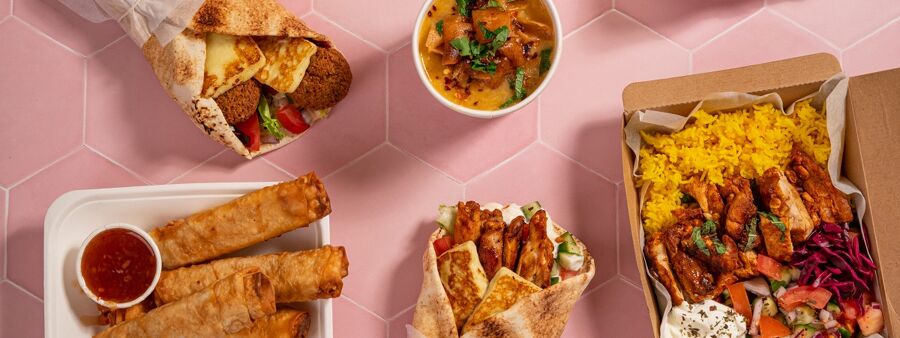
Nacho the Smart Delivery Robot
Computer Science with Artificial Intelligence - BSc (Hons)
Transforming campus food delivery with our solar-powered smart robot, ensuring eco-friendly and efficient service for students and staff alike.
Brief Overview of the Project
We are creating a smart delivery robot to make food delivery on university campuses more sustainable and efficient. This robot is solar-powered and autonomous, meaning it can operate on its own without human intervention. It aims to reduce pollution and use resources better, providing a convenient and eco-friendly way for students and staff to get their meals.
What Made You Want to Develop This Idea?
We noticed that traditional food delivery on university campuses causes a lot of problems like traffic jams, higher carbon emissions, and waste of resources. We saw an opportunity to use technology to solve these issues by creating a smart robot that can deliver food in a more sustainable and efficient way.
Why Is There a Need for What You’re Creating?
There is a significant need for a better food delivery system on university campuses because universities have a constant need for food delivery, which current methods can't meet efficiently. Existing delivery methods cause pollution and increase carbon emissions. More vehicles on campus lead to traffic jams and delays. There is also a need to use resources like energy and labour more efficiently. Our smart delivery robot addresses these issues by providing an eco-friendly and efficient solution that reduces congestion.
Can You Explain the Kind of Equipment You Are Using, and How You Are Creating the Physical Product?
To build our delivery robot, we use a smart robot car kit as the basic structure. We use Arduino and Raspberry Pi microcontrollers to control the robot’s functions like navigation and obstacle detection. Ultrasonic sensors help the robot detect obstacles and navigate safely. Motors enable the robot to move, and solar panels provide sustainable power to the robot, reducing its need for traditional energy sources.
Where Do You Envision the Future of This Project?
In the future, we aim to use these robots on more university campuses and in other busy areas like city centres and corporate campuses. We plan to improve the robot with advanced AI and machine learning for better navigation and efficiency. We also want to connect the robot with campus infrastructure and food service providers for smoother operations and better user experience. Additionally, we will continuously make the robot more sustainable with better solar panels and eco-friendly materials. By achieving these goals, we hope to promote sustainable practices and technological innovation in food delivery systems.
Innovation Stories
Innovation Fest' at Birmingham City University offers a multidisciplinary, team-based experience to students in computing, engineering, and the built environment. With a focus on real-world issues related to STEAM and the Sustainable Development Goals, students develop problem-solving skills, social responsibility, and commitment to viable solutions.
Find Out More